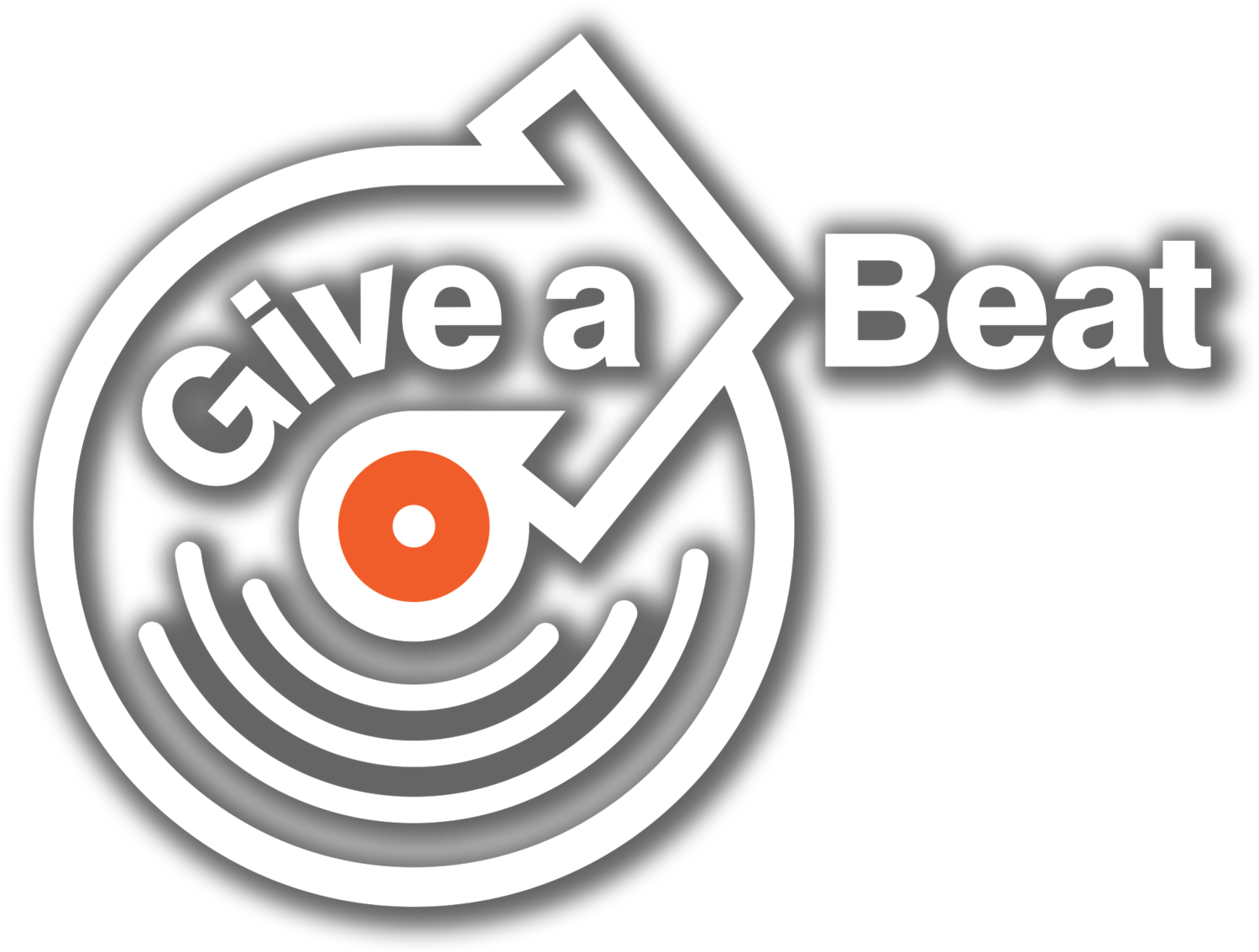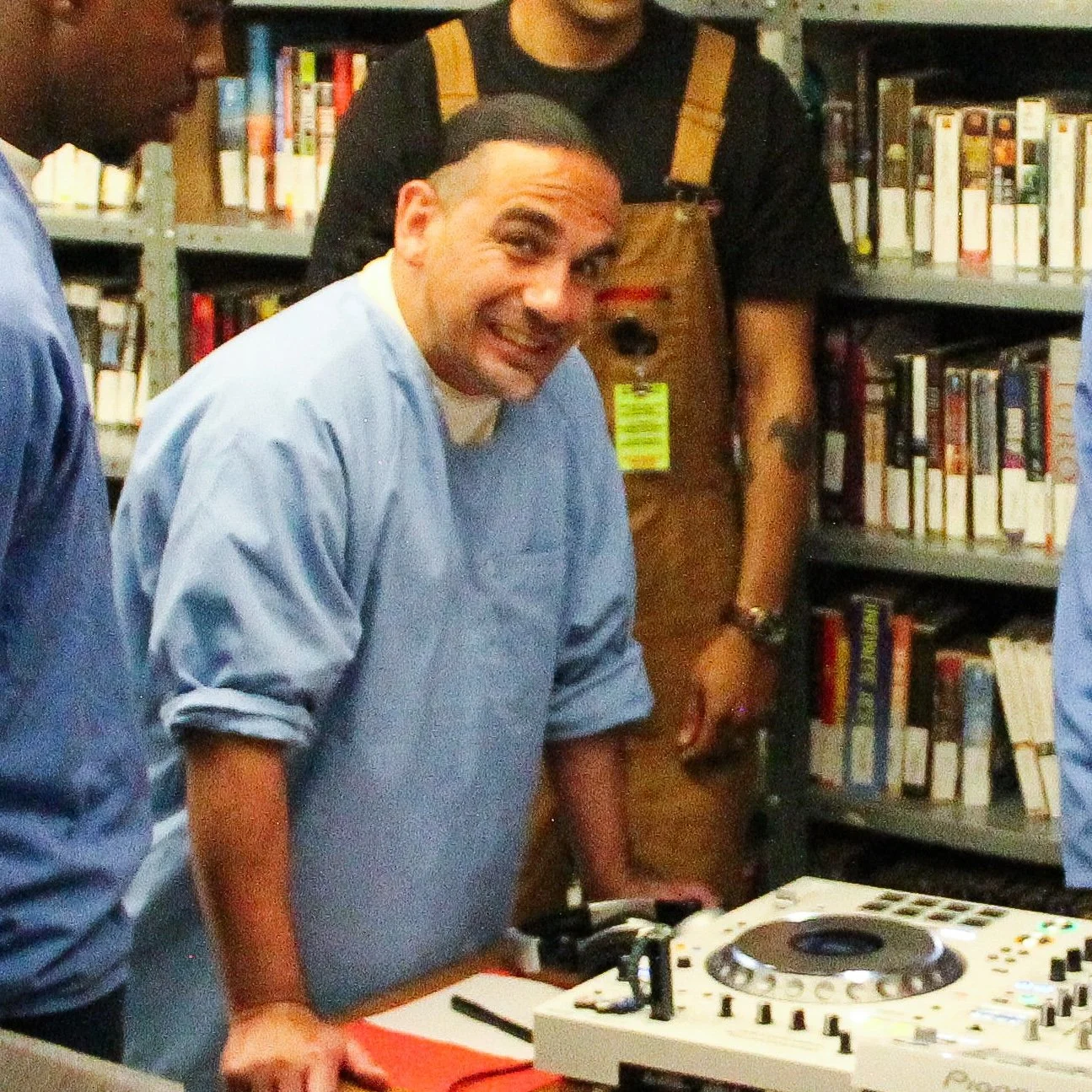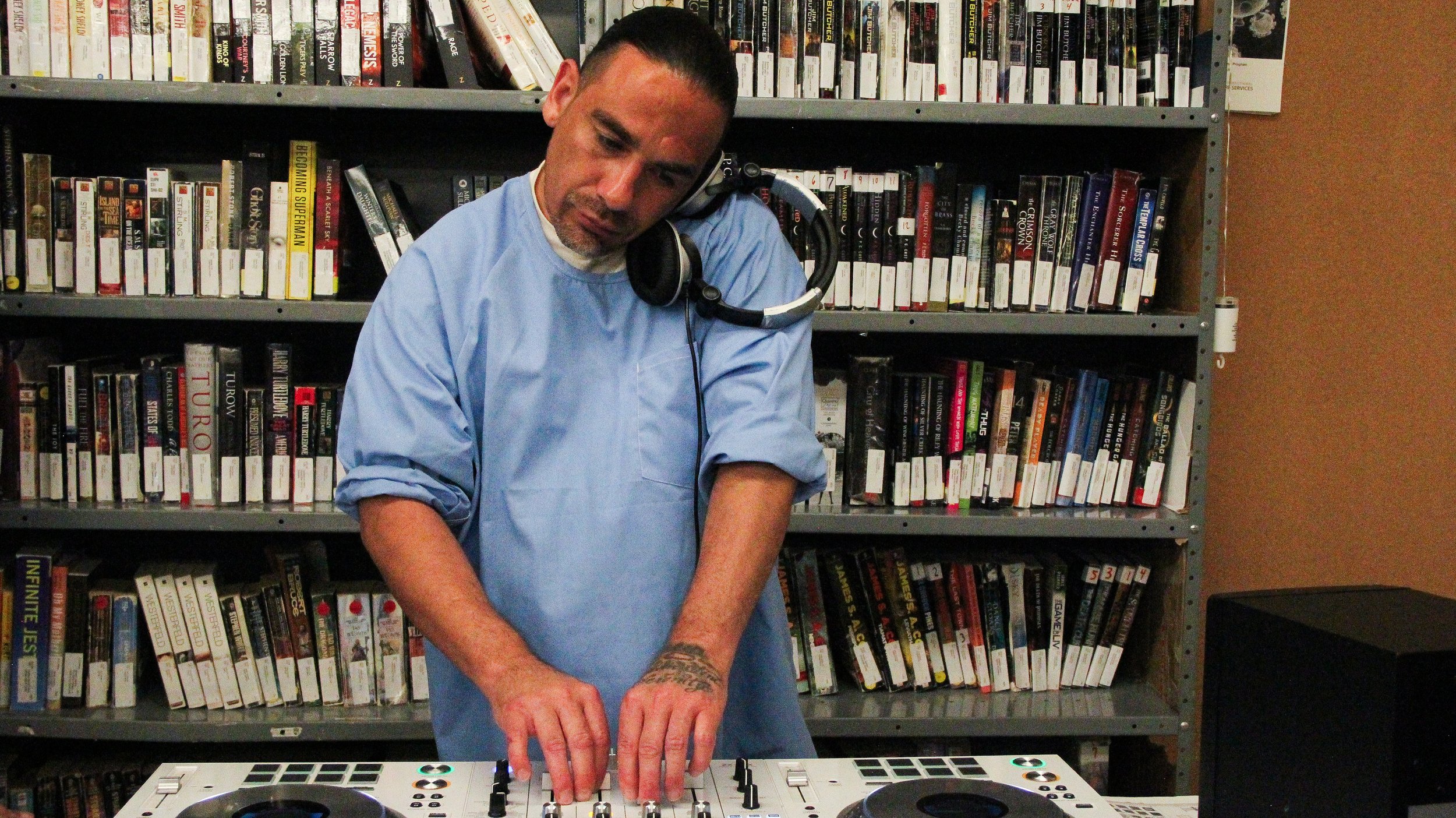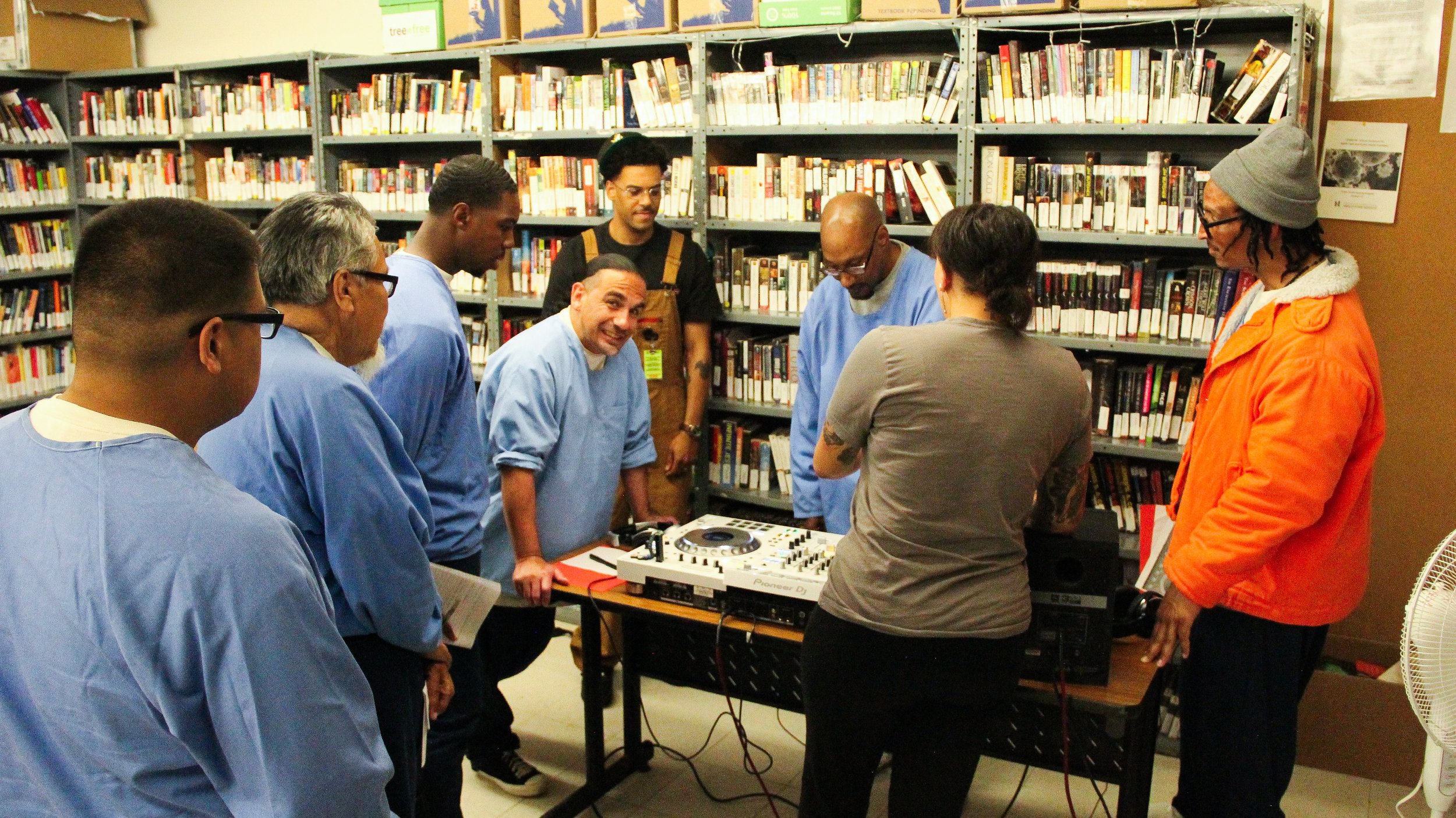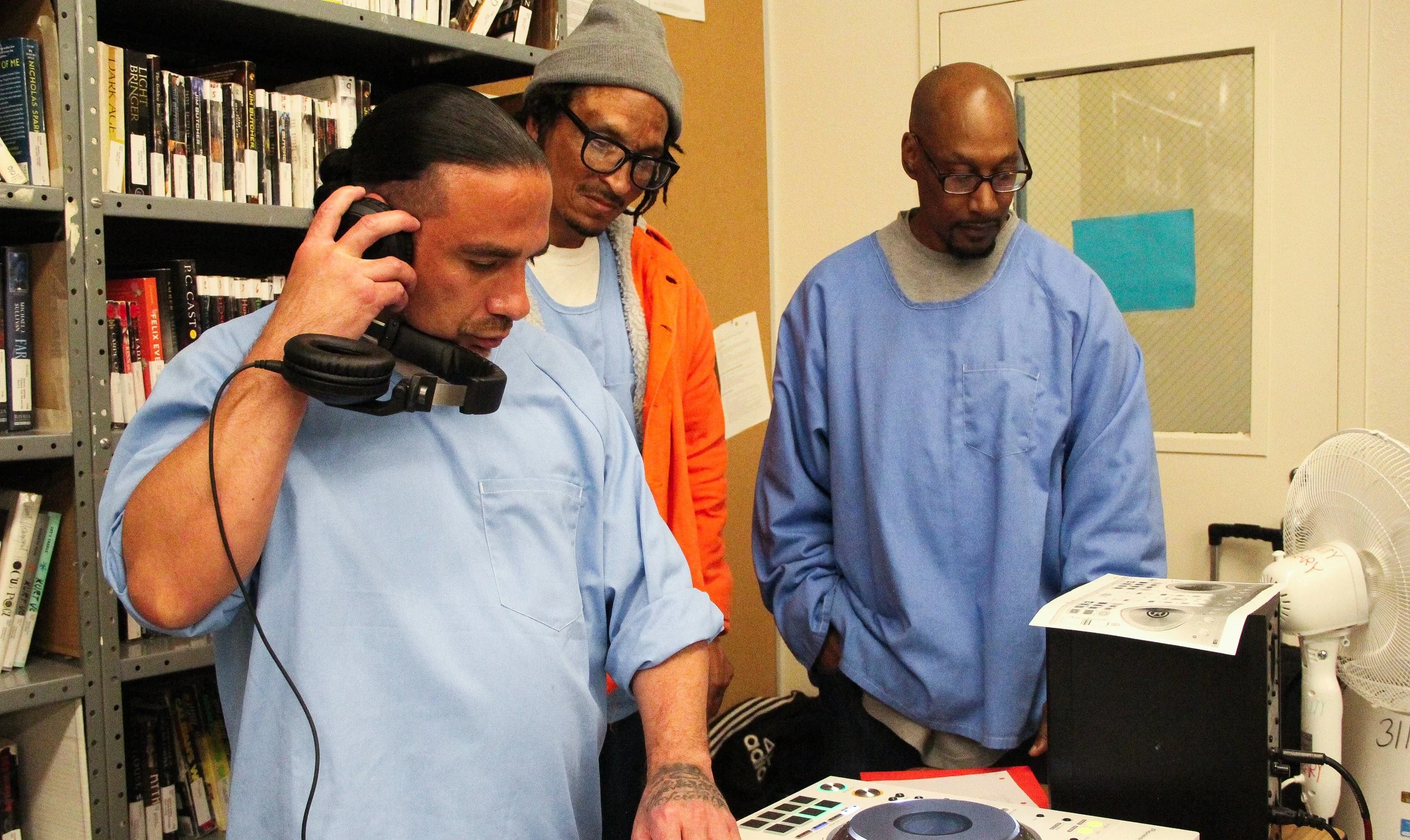DJ No Finger Prints
Honoring a Mother’s Love Through Music
CCI Session 3 2025
From the moment he joined the Prison Electronic Music Program, DJ No Fingerprints stood out. Attentive and engaged, he entered the classroom with quiet determination. He was initially nervous about learning new technology, both because of his age and the many years he’s spent in the carceral system, away from its rapid changes. Still, he showed up, ready to reconnect with something that had always grounded him: music. It had been a constant throughout his youth, a source of comfort during hard times, and a way to stay connected to family. Even his DJ name, “No Fingerprints,” carried meaning: it came from a special handshake he shares with his daughter, a gesture of love and continuity that extends beyond the prison walls.
During our opening and closing circles, he often spoke of backyard family parties from his childhood, where laughter and rhythm brought moments of joy and belonging. In class, that same spirit began to resurface. He was quick to contribute to group conversations and especially loved the artist reflections—written exercises designed to help participants process their class experiences, explore personal aspirations, and reflect on how music shapes their lives. These prompts became a space for emotional self-awareness and self-expression, giving him the chance to reconnect with cherished memories and shape his creative identity.
“Now that I know how to count beats, I listen to music differently.”
He found depth in the layering of sound and was surprised to realize that his natural rhythm from dancing helped him transition smoothly between songs, an unexpected connection that sparked both curiosity and confidence.
Over the course of the program, his technical skills grew, but something deeper was shifting too. He began to connect with people he never thought he would:
“ I’ve been able to connect with my fellow housing mates who I would have never talked to on the yard...These talks we have in here have really taught me a lot and have helped me open my mind.”
He formed an especially close bond with another participant, DJ Dex, and built trust through laughter, dialogue, and shared creativity. He also formed a meaningful connection with Teaching Artist Esseance, who, like him, was from California’s Central Valley. Their shared musical taste became a bridge, and he often made the effort to introduce her to songs that held personal significance. In doing so, he opened a door he once found intimidating: connecting across gender in an environment where interactions with women are limited.
For many men inside, that absence can narrow emotional expression and strain social dynamics. But through these exchanges, he began to practice a kind of openness often discouraged among men, especially in prison. Connecting with Esseance through music created space for trust, respect, and vulnerability.
That sense of connection would soon take on even greater significance. On the morning of graduation, the final day of the program, DJ No Fingerprints received a phone call no one is ever prepared for: his mother was in her final hours of life. Grief hit him, sudden and heavy. Word quickly spread among the group, and without hesitation, his peers moved into action with care. They encouraged him to come to class, not to distract him from the pain, but to hold space for him within it.
He made the choice to show up.
During his final DJ set, he dedicated his performance to his mother and played her favorite song by Mary J. Blige. As the music played, he stood behind the DJ decks and began to cry. The room fell silent, and his classmates responded without hesitation. DJ Dex was the first to step forward and embrace him with a hug. Others followed. What might have remained a solitary moment of grief became something shared: an expression of care, respect, and solidarity. And it all happened because he chose to participate.
Teaching Artist Esseance described the scene as sacred:
“Everyone in the room felt the heaviness of his loss, which allowed them to uplift him in this moment of grief, ultimately creating a place of healing.”
It was a moment of deep release and connection.
“I will always remember this moment where my brothers met me with embrace.”
In that room, music did more than fill the air—it held space for mourning, memory, and growth. DJ No Fingerprints left the program with new technical skills, a newfound sense of emotional openness, and a strengthened belief in his own resilience. He also left with something harder to define but just as lasting: the feeling of being seen, supported, and humanized in a system that so often strips that away.
As he looks toward release, hoping to attend his mother’s funeral, he carries with him the lasting impact of that healing moment, and the bonds that helped make it possible.
Donate today to help others find community, healing, and support through music - especially in the toughest of times.
